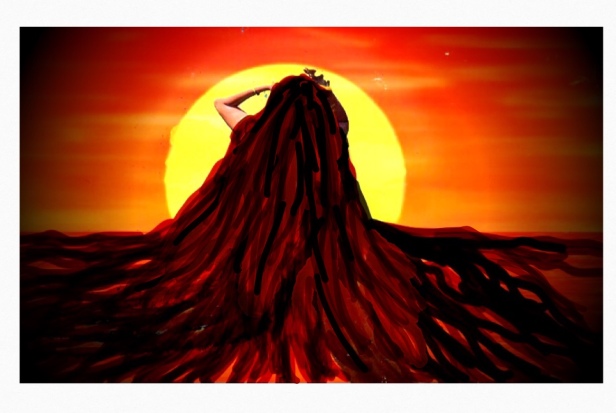By Aditya Shankar
Mechanical Nirvana
The stolen cycle knows the welled up eyes of the little boy returning from the departmental store. The way he slows down to a hurt at the parking station beneath the metro flyover. The way he repeatedly scans all the bikes to confirm the loss. Grief is the name of a city then, as our tiny angels fall from the levitation of a blissful wind-in-your-hair ride, the ever so feeble sound of the pedal rubbing against the chainring. Bicycle oiling, a miniature replica of mechanical nirvana. The First Investigation Report (FIR), another statistical data that drowns in our mechanical being. While rolling for the yegg, the cycle rebels in its own slip-chain ways. But our city of broadways patented to highborn cars drown all tiny protests. Vroom vroom, the malice of popular culture pixelates the urban sky as smog, blanketing our tiny moments. The cycle yearns to roll for the younger feet. It wades through the crowd, an eye always searching for the boy, who sits stone skipping at the same pond, the same cafe, the same rail line as the heartbroken lover and the aged widower. The city washes its unkempt red hair at the horizon, mature enough not to intervene in a quest within.

Whose is this Song?*
An unheard song fills a new found town. As softly as someone chewing peanuts inside an old motor ferry between Vipin and Mattanchery, it kept on reaching the town’s new urbans like things once learnt and often forgotten. Believing that past is a nagging song of pain that comes from a distance, they switched off the radio, telly and mobile in the vicinity. They watched the spoken and written word to see if it hides a song within. From their observatories, they watched the night trucks doing the Ghat hairpins to see if they transmogrify into singing birds. They watched the bucket beneath the dripping tap to confirm it isn’t a musical instrument of the dead. Townspeople hibernated into total inaction, but the beep never ceased. The sickly town felt the noise buzzing in its ear, like the cardiac monitor in an intensive care unit. Searching for a noose high enough to hang, the townsfolk gathered at a valley where they climbed upon each other to reach the ceiling of the sky, only to find a clock that goes tick-tock. Time is a culprit, sans guilt.
* – Based on the documentary by Adeela Peeva.
Aditya Shankar is an Indian poet, flash fiction author, and translator. His poems, fiction, and translations have appeared or are forthcoming in the The Ghost Parachute, Canada Quarterly, Indian Literature, Modern Poetry in Translation, The Little Magazine, The Four Quarters Magazine, The Anti Heroin Chic, The After Happy Hour Review, Chandrabhaga, Muse & Murmur, and elsewhere. Books: After Seeing (2006), Party Poopers (2014). He lives in Bangalore, India.
